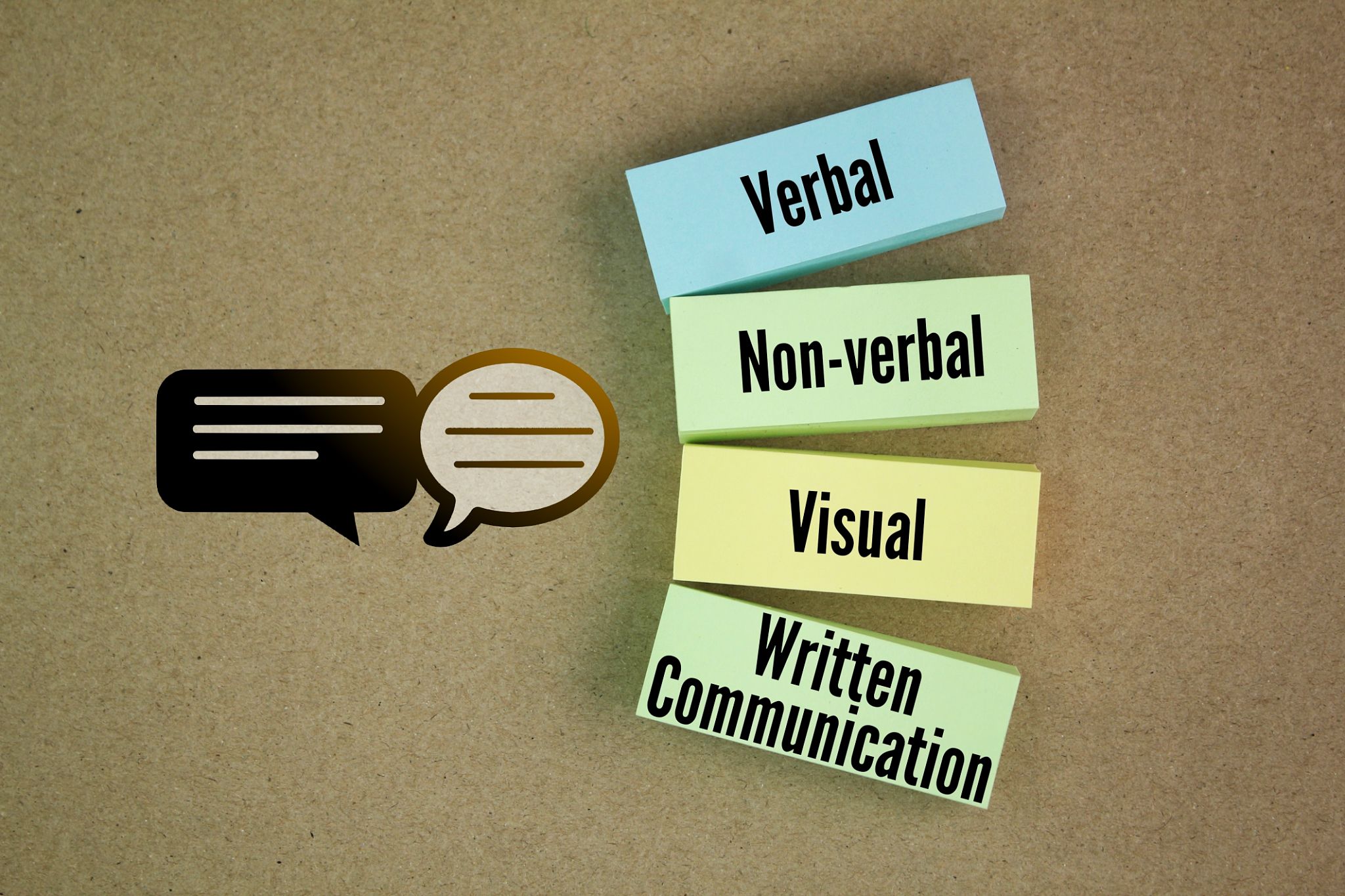Discretion and Tact: Essential Virtues for Human Flourishing
A Comprehensive Guide to Understanding, Recognizing, and Developing These Critical Character Traits
Introduction: The Timeless Relevance of Discretion and Tact
In an era of instant communication, social media oversharing, and increasingly polarized public discourse, the ancient virtues of discretion and tact have never been more relevant or more needed. These complementary character traits represent the sophisticated ability to navigate complex social and emotional terrain with wisdom, sensitivity, and integrity. Far from being mere social graces or diplomatic niceties, discretion and tact form the foundation of meaningful relationships, effective leadership, and psychological well-being.
Contemporary psychological research demonstrates that interpersonal communication competence—which encompasses discretion and tact—directly impacts mental health outcomes, need satisfaction, and overall life satisfaction. These virtues represent what virtue ethicists call “practical wisdom” (phronesis), the meta-capacity to integrate knowledge, experience, and moral sensitivity in real-world situations.
This article explores discretion and tact through both classical virtue ethics and modern psychological research, providing a comprehensive understanding of why these traits matter, how they manifest in daily life, and how they can be systematically developed to enhance both personal flourishing and social harmony.
Theoretical Foundation: Understanding Discretion and Tact as Virtues
Defining the Virtues
**Discretion** encompasses the ability to exercise sound judgment, particularly in sensitive situations. It involves knowing when to speak and when to remain silent, when to act and when to refrain, and how to handle confidential or delicate information responsibly. Discretion includes self-awareness, thoughtfulness, and the recognition that not everyone has equal permission to express their feelings in every context.
**Tact** represents the skill of communicating sensitively and diplomatically, especially when addressing difficult topics or delivering challenging feedback. Tact involves understanding not just what is being said but how it is being said, and responding appropriately to preserve relationships while still being truthful. It encompasses emotional intelligence, respect, discretion, self-awareness, thoughtfulness, compassion, subtlety, honesty, diplomacy, and courtesy.
Virtue Ethics and Character Development
Classical virtue ethics, tracing back to Aristotle, defines virtues as character traits that contribute to human flourishing (eudaimonia). Unlike rule-based or consequence-focused ethical systems, virtue ethics emphasizes the development of excellent character as the path to both moral goodness and personal well-being.
Modern research in virtue ethics recognizes that character development is a dynamic, lifelong process rather than a static achievement. Contemporary virtue ethicists acknowledge that virtues can conflict, virtuous people face genuine dilemmas, and character development occurs through navigating these complexities rather than achieving perfect consistency.
Discretion and tact exemplify what Aristotle called the “golden mean”—the virtuous balance between extremes. Discretion represents the mean between harmful secrecy (deficiency) and thoughtless transparency (excess). Tact represents the mean between cruel bluntness (deficiency) and manipulative flattery (excess).
Psychological Research Supporting Virtue Development
Recent research demonstrates that emotional intelligence, which underlies both discretion and tact, can be improved through systematic training even in professional environments. Emotional intelligence involves the capacity to understand and manage emotions in oneself and others, using emotional information to guide thinking and behavior.
Leading emotional intelligence researcher Marc Brackett emphasizes that emotional skills require understanding “how and when to express emotions with different people across culture and context”—a description that perfectly captures the essence of discretion and tact.
Studies consistently show that emotional intelligence correlates with reduced psychological distress, improved job satisfaction, and better overall health and well-being. This research supports the classical virtue ethics claim that developing excellent character traits leads to human flourishing.

The Psychological and Social Benefits of Discretion and Tact
Individual Benefits
Developing discretion and tact provides numerous psychological advantages. Research shows that interpersonal communication competence reduces anxiety and stress while increasing need satisfaction. Individuals who possess these virtues experience:
**Enhanced Self-Regulation**: Discretion requires the ability to pause, reflect, and choose responses rather than reacting impulsively. This develops what psychologists call “emotional regulation”—the capacity to manage one’s emotional responses effectively.
**Reduced Social Anxiety**: People with higher emotional intelligence can use tact and diplomacy more naturally in communication, reducing the stress and anxiety that often accompanies difficult conversations.
**Increased Cognitive Flexibility**: Practicing discretion and tact develops the ability to consider multiple perspectives simultaneously, enhancing problem-solving abilities and adaptive thinking.
**Greater Self-Awareness**: The process of developing virtue involves sophisticated emotion regulation that includes autobiographical memory and mentalization—the ability to understand the mental states underlying behavior.
Relational Benefits
Using tact and diplomacy appropriately leads to improved relationships with others and builds mutual respect, which in turn leads to more successful outcomes and less difficult or stressful communications. The relational benefits include:
**Trust Building**: Discretion demonstrates reliability and respect for others’ privacy, forming the foundation of trust in relationships.
**Conflict Prevention and Resolution**: Understanding how to manage disagreements and negative emotions through tactful communication helps prevent minor issues from escalating into major conflicts.
**Enhanced Empathy**: Both discretion and tact require the ability to see the world from another person’s perspective, developing empathy as a natural byproduct.
**Professional Advancement**: In workplace settings, consistent demonstration of tact creates respect among colleagues and supervisors, often leading to career advancement opportunities.
Societal Benefits
The aggregate effect of individuals practicing discretion and tact creates broader social benefits:
**Reduced Social Polarization**: In an era of increasing division, these virtues help bridge differences by creating space for respectful dialogue across disagreements.
**Improved Public Discourse**: Tactful communication elevates the quality of public conversations, making complex problem-solving more possible.
**Cultural Sensitivity**: Discretion and tact require mindfulness of identity, cultural differences, and varying perspectives, promoting inclusivity and understanding.
Discretion and Tact in Action: Practical Examples
Professional Contexts
**Leadership Communication**: A manager needs to address poor performance with a team member. Instead of saying “Your work has been sloppy and unacceptable,” a tactful approach might be: “I’d like to discuss some specific areas where we can enhance the quality and impact of your contributions. Let’s work together on strategies that will help you succeed.”
**Confidential Information**: An executive learns about upcoming layoffs but cannot share this information. Discretion involves managing their own emotions about the situation while maintaining normal interactions with colleagues, neither giving false reassurance nor inadvertently revealing the information through changes in behavior.
**Cross-Cultural Communication**: When working with international colleagues, discretion involves recognizing that communication styles vary across cultures. What seems direct and honest in one culture may appear rude in another, requiring tactful adaptation of communication approach.
Personal Relationships
**Family Dynamics**: During family gatherings, discretion might involve choosing not to engage with provocative political statements from relatives, while tact might involve redirecting conversations toward common ground: “I understand you feel strongly about that. What I’ve been thinking about lately is how we can support the local community center that means so much to all of us.”
**Friendship Challenges**: When a friend shares information about their relationship problems, discretion involves maintaining confidentiality while tact helps provide support without giving unsolicited advice: “That sounds really difficult. How are you feeling about everything right now?”
**Romantic Relationships**: Tact in intimate relationships involves addressing concerns without attacking character: Instead of “You never listen to me,” a tactful approach might be “I’d really appreciate it when I’m sharing something important if you could put down your phone and give me your full attention.”
Community and Social Settings
**Neighborhood Issues**: When addressing community problems, discretion involves understanding the appropriate channels and timing, while tact involves framing concerns constructively: “I’ve noticed some challenges with parking in our area. Could we explore some solutions that work for everyone?”
**Social Media**: Given research on social anxiety and interpersonal sensitivity online, discretion involves being thoughtful about what to share publicly, while tact involves engaging respectfully even with those who hold different views.
Crisis and Sensitive Situations
**Delivering Difficult News**: Whether informing someone about a death in the family or sharing disappointing news, tact involves considering timing, setting, and emotional support: “I have some difficult news to share with you. Is this a good time to talk? Would you like to sit down?”
**Addressing Harmful Behavior**: When confronting someone about concerning behavior, discretion involves choosing the right time and place, while tact involves focusing on specific behaviors rather than character attacks: “I care about you and I’ve noticed some things that concern me. Can we talk about how you’re doing?”

Recognizing Discretion and Tact in Others
Observable Behaviors and Characteristics
Learning to recognize these virtues in others helps us identify positive role models and understand these traits more deeply:
**In Conversation**:
- They listen more than they speak
- They ask thoughtful questions before offering opinions
- They avoid gossip and resist the urge to share others’ personal information
- They can disagree without being disagreeable
- They remember and respect confidences shared with them
**In Conflict Situations**:
- They remain calm under pressure
- They acknowledge others’ perspectives before sharing their own
- They focus on issues rather than personalities
- They seek win-win solutions rather than trying to “win” arguments
- They know when to disengage from unproductive conversations
**In Professional Settings**:
- They give credit generously and accept criticism gracefully
- They handle sensitive information appropriately
- They can deliver bad news in ways that maintain dignity
- They adapt their communication style to their audience
- They build bridges between different groups or perspectives
Subtle Indicators
People who possess these virtues demonstrate emotional intelligence through their ability to read both verbal and nonverbal cues:
- They notice when someone is uncomfortable and adjust their approach
- They can sense the emotional temperature of a room and respond appropriately
- They recognize cultural and individual differences in communication preferences
- They show awareness of power dynamics and privilege in interactions
- They demonstrate humility by acknowledging their own limitations and mistakes
What Discretion and Tact Are Not
It’s equally important to recognize what these virtues are not, to avoid confusing them with less virtuous behaviors:
**Not Dishonesty**: Discretion and tact involve truthfulness delivered with wisdom and care, not deception or manipulation.
**Not Weakness**: These virtues require strength and courage to navigate difficult situations constructively.
**Not Passivity**: Tactful people can be assertive and direct when appropriate; they simply choose their approach thoughtfully.
**Not People-Pleasing**: True tact serves long-term relationship health rather than short-term approval.
Developing Discretion and Tact: A Systematic Approach
Foundational Skills Development
Emotional Intelligence Enhancement
Research shows that emotional intelligence can be systematically developed through focused practice. The foundational components include:
**Self-Awareness**: Begin by developing greater awareness of your own emotional responses, triggers, and communication patterns. Keep a daily journal noting situations where you responded well or poorly, and identify patterns.
**Self-Regulation**: Practice pausing before responding, especially in emotionally charged situations. The simple technique of counting to three before speaking can create space for more thoughtful responses.
**Empathy Development**: Actively work on seeing situations from others’ perspectives. Before responding to someone, ask yourself: “What might they be feeling right now? What pressures or concerns might be influencing their behavior?”
**Social Awareness**: Study group dynamics, cultural differences, and contextual factors that influence communication. Notice how different people prefer to receive information and feedback.
Practical Communication Skills
**Active Listening**: Develop the ability to listen not just to what is being said but how it is being said. Practice summarizing what others have shared before offering your own thoughts.
**Questioning Techniques**: Learn to ask open-ended questions that invite deeper sharing rather than defensive responses. Instead of “Why did you do that?” try “Help me understand your thinking on this.”
**Nonverbal Awareness**: Study body language, tone of voice, and other nonverbal cues both in yourself and others. Ensure your nonverbal communication aligns with your intended message.
**Word Choice**: Practice choosing words that convey your message without causing unnecessary offense. Instead of “You’re wrong,” try “I see it differently” or “Have you considered this perspective?”
Progressive Practice Exercises
Level 1: Basic Awareness
- Spend one week simply observing your own communication patterns without trying to change them
- Notice when you interrupt, speak impulsively, or share information that might have been better kept private
- Observe how others demonstrate discretion and tact in various situations
Level 2: Pause and Reflect
- Before speaking in emotionally charged situations, take three deep breaths and ask: “Is this helpful? Is this kind? Is this necessary?”
- Practice the 24-hour rule for sensitive emails or messages—draft your response but wait before sending
- When someone shares confidential information, explicitly acknowledge the trust they’ve placed in you
Level 3: Intentional Practice
- Choose one difficult conversation each week to approach with heightened awareness of tact and discretion
- Practice giving constructive feedback using the “sandwich” method: positive observation, specific improvement suggestion, encouraging conclusion
- Work on reading group dynamics and adjusting your communication style accordingly
Level 4: Advanced Integration
- Practice introducing ideas in ways that allow others to take ownership of them
- Develop the ability to de-escalate tense situations while still addressing important issues
- Learn to hold space for others’ emotions without feeling compelled to fix or change their feelings
Specific Development Strategies
Mindfulness and Reflection Practices
Research shows that mindfulness practices enhance emotional intelligence. Develop a regular practice of:
**Daily Reflection**: Spend 10-15 minutes each evening reviewing your interactions. What went well? Where could you have been more tactful or discrete? What did you learn about yourself or others?
**Mindful Communication**: Before important conversations, take a few minutes to center yourself and set intentions for how you want to show up in the interaction.
**Meditation and Contemplation**: Regular mindfulness practice develops the mental spaciousness necessary for thoughtful responses rather than reactive ones.
Learning from Role Models
Identify people in your personal and professional life who demonstrate these virtues well:
**Observation**: Study how they handle difficult situations, deliver challenging feedback, and maintain confidentiality.
**Mentorship**: When appropriate, ask these individuals for guidance on specific situations you’re facing.
**Biography and Literature**: Read biographies of individuals known for their wisdom and diplomatic skills. Study how historical figures navigated complex interpersonal and political situations.
Cultural and Contextual Learning
Develop awareness of how communication norms vary across different contexts:
**Cross-Cultural Competence**: Learn about communication styles in different cultures, particularly if you work in diverse environments.
**Generational Awareness**: Understand how different generations prefer to communicate and receive information.
**Professional Contexts**: Study the communication norms and expectations in your specific industry or field.
Overcoming Common Challenges
Perfectionism and Idealization
Virtue development involves accepting that things are complex and messy rather than striving for perfect consistency. Common challenges include:
**Fear of Making Mistakes**: Accept that developing these virtues involves learning from errors in judgment. Each mistake provides valuable information for future growth.
**All-or-Nothing Thinking**: Recognize that virtue development is gradual and situational. You might be tactful in professional settings but struggle in family dynamics, and that’s normal.
**Comparing Yourself to Others**: Focus on your own growth rather than comparing your developing skills to others who may have more experience or natural aptitude.
Balancing Authenticity and Tact
A common concern is whether being tactful means being inauthentic:
**Authentic Tact**: True tact involves finding authentic ways to express yourself that also consider others’ wellbeing. It’s not about hiding your true self but about expressing it thoughtfully.
**Timing and Context**: Sometimes authenticity means recognizing that certain truths are better shared at different times or in different ways.
**Intention Matters**: Check your motivations. Are you being tactful to serve the relationship and situation, or to avoid difficult conversations altogether?
Dealing with Those Who Lack These Virtues
You’ll inevitably encounter people who are indiscrete or tactless:
**Maintain Your Standards**: Don’t let others’ poor behavior lower your own standards of communication.
**Protect Yourself**: Set boundaries around confidential information and limit what you share with those who don’t respect discretion.
**Model Better Behavior**: Sometimes the best way to encourage virtue in others is to consistently demonstrate it yourself.

Advanced Applications and Continued Growth
Leadership and Professional Development
For those in leadership positions, discretion and tact become even more critical as your communication affects more people and has greater consequences:
**Crisis Communication**: Learn to communicate during crises in ways that provide necessary information while maintaining confidence and stability.
**Change Management**: Develop skills in introducing changes tactfully, helping people understand and adapt to new circumstances.
**Difficult Conversations**: Master the art of performance reviews, disciplinary actions, and other challenging professional conversations.
Community and Social Leadership
These virtues are essential for community building and social change:
**Conflict Mediation**: Learn to help others resolve disputes by creating safe spaces for honest communication.
**Bridge Building**: Develop skills in finding common ground between opposing groups or perspectives.
**Advocacy**: Learn to advocate for important causes in ways that persuade rather than alienate potential allies.
Personal Relationships and Family Life
Discretion and tact become increasingly important as relationships deepen:
**Parenting**: Model these virtues for children while using age-appropriate communication that builds trust and understanding.
**Marriage and Partnership**: Navigate the long-term challenges of intimate relationships with grace and wisdom.
**Extended Family**: Manage complex family dynamics across generations and different value systems.
Lifelong Learning and Adaptation
Virtue development is a lifelong process that adapts to changing circumstances and growing wisdom:
**Continued Study**: Read philosophy, psychology, and literature that deepens your understanding of human nature and communication.
**Feedback and Assessment**: Regularly seek feedback from trusted friends and colleagues about your communication patterns.
**Adaptation to Change**: As society evolves, continue learning about new communication challenges and opportunities.
The Broader Impact: Virtue and Human Flourishing
Personal Transformation
Developing discretion and tact creates positive changes that extend far beyond communication skills:
**Character Integration**: These virtues represent practical wisdom (phronesis), the meta-capacity that integrates knowledge, experience, and moral sensitivity. As they develop, they influence other areas of character development.
**Psychological Well-being**: The emotion regulation skills involved in virtue development contribute directly to mental health and life satisfaction.
**Spiritual Growth**: Many find that developing these virtues deepens their sense of connection to others and their understanding of their own values and purpose.
Ripple Effects
The practice of discretion and tact creates positive effects that extend beyond the individual:
**Family Systems**: Children who grow up witnessing these virtues learn healthier communication patterns that they carry into their own relationships.
**Workplace Culture**: Teams and organizations led by people who practice these virtues experience better collaboration, higher trust, and more effective problem-solving.
**Community Healing**: In an era of social division, individuals who practice discretion and tact help create spaces for healing and understanding.
Future Considerations
As society continues to evolve, discretion and tact will require adaptation to new contexts:
**Digital Communication**: Learning to practice these virtues in online spaces, social media, and virtual interactions.
**Global Connectivity**: Developing cultural competence for an increasingly connected world.
**Artificial Intelligence**: As AI becomes more prevalent in communication, humans who can demonstrate genuine empathy, discretion, and tact will become increasingly valuable.

Conclusion: The Path Forward
Discretion and tact represent more than mere social skills or professional competencies—they are fundamental virtues that contribute to human flourishing at both individual and collective levels. As classical virtue ethics recognized, these character traits both express and develop our capacity for practical wisdom, enabling us to navigate life’s complexities with grace and effectiveness.
The research is clear: developing the emotional intelligence and interpersonal communication competence that underlie these virtues reduces psychological distress, increases life satisfaction, and improves our relationships. Moreover, these capabilities can be systematically developed through intentional practice and reflection.
In our current social climate, characterized by polarization, rapid communication, and increasing diversity, the need for discretion and tact has never been greater. These virtues offer a path toward more thoughtful public discourse, stronger relationships, and more effective collaboration across differences.
The journey of developing discretion and tact is ultimately a journey toward becoming the kind of person who contributes positively to the world. It requires patience, practice, and the humility to continue learning from both successes and mistakes. Yet the rewards—for ourselves, our relationships, and our communities—make this one of the most worthwhile investments we can make in our personal development.
As we move forward, the challenge is not merely to understand these virtues intellectually, but to embody them consistently in our daily lives. This requires ongoing commitment to growth, regular reflection on our progress, and the courage to continue striving for excellence even when it’s difficult.
The path of virtue is not about achieving perfection but about engaging thoughtfully and persistently with the complexities of human relationship. In choosing to develop discretion and tact, we choose to be people who make the world a little more thoughtful, a little more kind, and a little more wise. In an age that desperately needs such people, this may be one of the most important contributions we can make.
